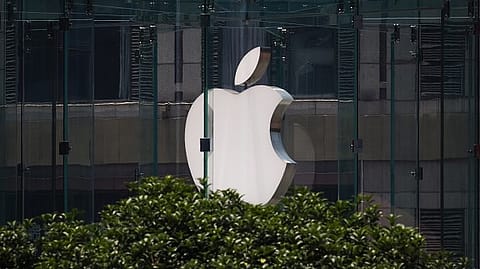Apple’s AI gamble at WWDC 2025: Is the iPhone maker falling behind in the AI race?
Some within the company also criticised the decision to promote unfinished AI features to boost iPhone 16 sales, with senior executive Robby Walker calling the move “ugly and embarrassing.”

As Apple gears up for its Worldwide Developers Conference (WWDC) on June 9, Bloomberg’s Mark Gurman, veteran reporter of the Cupertino-based tech giant, has painted a sobering picture of where the company stands in the artificial intelligence race — and it’s not in the lead.
A year after debuting Apple Intelligence, the company’s generative AI platform, the initial buzz has faded. Apple’s positioning as a “thoughtful latecomer” no longer carries weight. Gurman reports that the platform, hyped as a major leap, has delivered underwhelming results so far — from delayed releases and watered-down features to a still-missing next-gen Siri.
While competitors like OpenAI and Google are advancing at breakneck speed — rolling out tools that integrate personal data, transform video, and deliver chatbot-style interactivity — Apple is still wrestling with foundational issues. Even the AI features it launched, such as Genmoji or Writing Tools, failed to match the excitement of rivals’ breakthroughs.
At this year’s WWDC, Apple is expected to lean on incremental improvements. Gurman revealed that the key AI announcement at the ‘Dub Dub’ will be the opening of its small-scale on-device foundation models (around 3 billion parameters) to third-party developers. These can power simple tasks like text summarisation but pale in comparison to OpenAI’s and Google’s far more capable cloud models.
Beyond that, Apple is expected to unveil modest AI features — an upgraded Translate app, a power management tool, and rebranded “AI-powered” touches in apps like Safari and Photos. A visual refresh of its operating systems and a shift to year-based naming might add polish but not substance.
Why did AI delays occur in the first place?
Apple’s delays in rolling out AI features stem from both strategic choices and internal struggles. In an interview with The Wall Street Journal last October, Apple’s software chief Craig Federighi explained that the company isn’t aiming to release just another chatbot. Instead, it wants to build AI that’s deeply personal, privacy-focused, and tightly integrated across its ecosystem.
Recommended Stories
Unlike most AI platforms that process data in the cloud, Apple claimed to prioritise on-device processing to safeguard user privacy. Regulatory uncertainty, especially in the European Union, had also added further complexity. These legal hurdles have reportedly contributed to the company’s cautious, phased rollout of AI features.
Some within the company also criticised the decision to promote unfinished AI features to boost iPhone 16 sales, with senior executive Robby Walker calling the move “ugly and embarrassing.”
To address the mounting frustration, Apple saw a restructuring its AI leadership in March this year. CEO Tim Cook, said to be increasingly dissatisfied with the slow pace, reportedly sidelined AI chief John Giannandrea and handed Siri’s reins to Mike Rockwell, the executive behind the Vision Pro.
Yet projects are underway
(INR CR)
Behind the scenes, however, Apple is making progress. The company has reportedly developed internal models with up to 150 billion parameters, nearing GPT-4 class, and uses them for testing via an internal tool called Playground. But the company remains cautious about launching a public chatbot, citing hallucination concerns and executive hesitation. Gurman added that Apple has several major AI projects underway, but most will not be ready until 2026. These include a revamped Siri powered by large language models to enable more natural, ChatGPT-like conversations; an upgraded Shortcuts app that uses Apple Intelligence to automate tasks; and “Mulberry,” an AI-driven health assistant tied to a redesigned Health app. Also, in development is “Knowledge,” a chatbot that pulls in web data, though it's already facing internal challenges.
But as Gurman warns, taking a “gap year” in AI is risky when rivals are pushing boundaries every month.